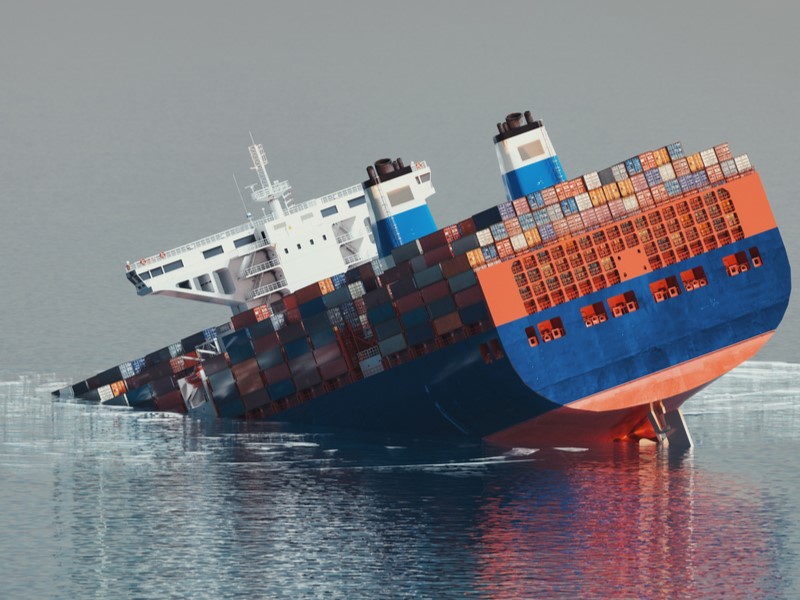How Canada fares on global shipping losses

Commercial shipping operations in Canadian waters did not see a single vessel lost during 2023, Allianz Commercial tells Canadian Underwriter.
A new report from Allianz Commercial, Safety and Shipping Review 2024, notes global shipping losses hit an all-time low of 26 vessels in 2023, despite rising risks sector-wide.
Those losses are down more than a third year-over-year, and 70% over the past decade. Thirty years ago, the brokerage report notes, global shipping fleets lost around 200 large vessels a year.
Canada’s waters were not immune during those years. Over the past decade, Canadian maritime regions have seen 14 vessels lost. One on the West coast, seven in the Canadian Arctic and Alaska, and six in Newfoundland.
Despite the good global loss numbers overall, Allianz Commercial cautions clients about growing uncertainties due to war and geopolitical events, consequences of climate change, and risks stemming from increased vessel size. All mean the shipping sector must work hard to sustain the low loss numbers.
“The speed and extent of the way the industry’s risk profile is changing is unprecedented in modern times. Conflicts such as in Gaza and Ukraine are reshaping global shipping, impacting crew and vessel safety, supply chains and infrastructure, and even the environment,” says Captain Rahul Khanna, global head of Marine Risk Consulting at Allianz Commercial.
“Piracy is on the rise, with a worrying re-emergence off the Horn of Africa. The ongoing disruption caused by drought in the Panama Canal shows how the changing climate is affecting shipping.”
The 2023 hotspot for global shipping losses was the South China, Indochina, Indonesia and the Philippines maritime region, accounting for eight vessels lost. Second is the East Mediterranean and Black Sea with six. Cargo ships accounted for over 60% of vessels lost globally in 2023.
Shipping incidents and future risks
Global totals for shipping incidents fell slightly during 2023 to 2,951, against 3,036 in 2022. The British Isles ranked highest with 695 incidents.
Among its regions, Canada saw 90 shipping incidents reported in Newfoundland during 2023, with machinery damage or failure as the top cause (64 incidents). That’s an improvement over 2022, when Newfoundland saw 107 total incidents.
There also were 71 incidents in the Canadian Arctic and Alaska region during 2023, with the main cause (47 incidents) being machinery damage. The 2023 total is up from 55 incidents in 2022.
Further, the report notes global shipping is increasingly vulnerable to “proxy wars, disputes and geopolitical events, with more than 100 ships targeted in the Red Sea alone by Houthi militants in response to the [Gaza] conflict.”
Going forward, technologically driven attacks (including those using drones) against shipping and ports may rise. “Reports of vessels experiencing GPS interference are increasing, particularly in the Strait of Hormuz, the Mediterranean and the Black Sea,” says Khanna.
Feature image by iStock.com/phaisarn2517







